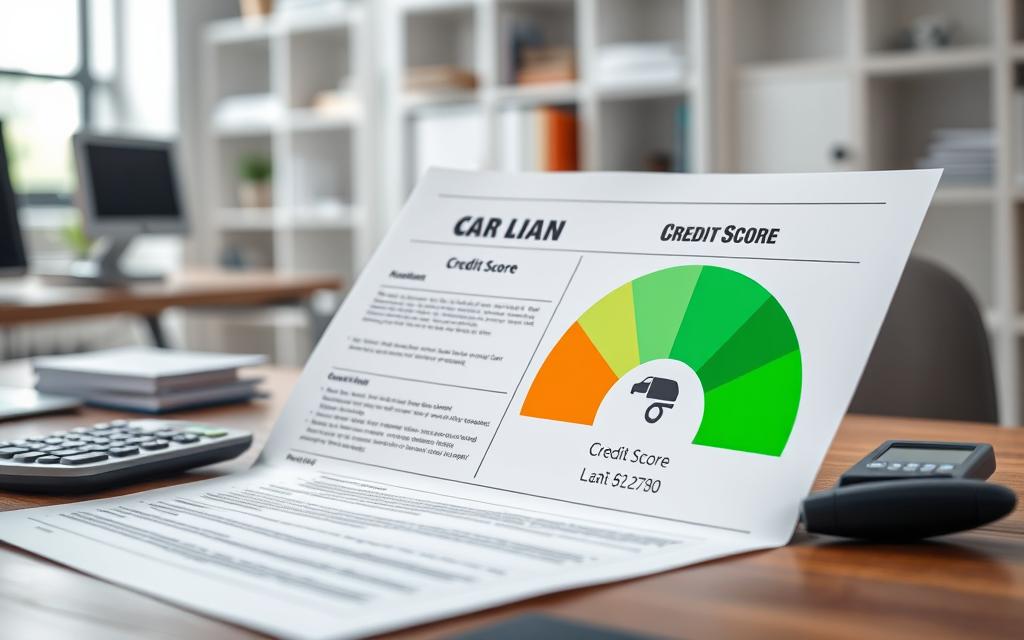The auto loan industry is undergoing a significant transformation. Driven by evolving consumer behaviors, emerging technologies, and shifting economic factors, the landscape of car financing is changing rapidly.
Understanding these changes is crucial for consumers and lenders alike. As the industry evolves, it is essential to stay informed about the latest developments and updates in car loan financing.
The current state of the auto loan industry is characterized by a mix of traditional lending practices and innovative financing solutions. Evolving consumer preferences and technological advancements are expected to shape the future of auto loans.
The Evolving Landscape of Auto Financing
The auto financing landscape is undergoing a significant transformation driven by technological advancements and changing consumer behaviors. The automotive industry is a substantial contributor to the U.S. economy, accounting for 5% of the total GDP and employing over 10 million individuals.
As the industry grows, so does the complexity of auto financing. Consumer debt in auto loans and leases has surpassed $1.7 trillion, indicating a significant demand for innovative auto finance solutions.
Current State of the Auto Loan Market
The current auto loan market is characterized by rising car prices and interest rates, making it challenging for consumers to secure affordable financing. This has led to an increased demand for next-gen vehicle financing options that can provide more flexibility and personalized repayment plans.
| Category | 2019 | 2020 | 2021 |
|---|---|---|---|
| Auto Loan Debt (trillion $) | 1.4 | 1.5 | 1.7 |
| Average Interest Rate (%) | 4.5 | 4.2 | 4.8 |
Forces Driving Change in Car Financing
The forces driving change in car financing include digital transformation, emerging technologies, and shifting consumer preferences. These factors are giving rise to innovative auto finance solutions that are more consumer-friendly and efficient.
As the industry continues to evolve, lenders are adopting next-gen vehicle financing models that incorporate advanced data analytics and AI to provide more accurate risk assessments and personalized loan options.
Digital Transformation in Auto Lending
The auto loan industry is undergoing a significant digital transformation, driven by emerging car loan technologies and cutting-edge loan options for cars. This shift is enhancing the customer experience and streamlining the lending process.
Online Application and Approval Processes
Online applications have become the norm, allowing consumers to apply for auto loans from the comfort of their homes. This digital convenience reduces the need for physical visits to financial institutions, making the process more efficient.
Mobile-First Lending Platforms
With the rise of mobile devices, lenders are adopting mobile-first strategies. These platforms enable users to manage their loan applications and access financing options on-the-go.
Paperless Documentation Systems
The adoption of paperless documentation is another significant aspect of digital transformation. By digitizing documents, lenders can reduce paperwork, minimize errors, and accelerate the approval process.
These advancements in digital auto lending are transforming the industry, offering consumers a more streamlined and user-friendly experience.
Artificial Intelligence and Machine Learning in Loan Decisions
In the evolving landscape of auto financing, AI and ML play a crucial role in shaping loan decisions. The integration of these technologies is enhancing the lending process, making it more efficient and personalized.
Automated Underwriting Systems
Automated underwriting systems utilize AI to analyze creditworthiness and make loan decisions faster than traditional methods. These systems can process vast amounts of data, including credit scores, income levels, and employment history, to determine the risk associated with lending.
Predictive Analytics for Risk Assessment
Predictive analytics, powered by ML, helps lenders assess the risk of loan defaults more accurately. By analyzing historical data and identifying patterns, these systems can predict the likelihood of a borrower repaying the loan.
AI-Powered Customer Service Solutions
AI-powered chatbots and virtual assistants are improving customer service in auto lending. They provide 24/7 support, answering queries, and helping borrowers navigate the loan application process.
| Technology | Application in Auto Lending | Benefits |
|---|---|---|
| Automated Underwriting Systems | Faster loan decisions | Reduced processing time, improved accuracy |
| Predictive Analytics | Risk assessment | Better risk management, reduced defaults |
| AI-Powered Customer Service | 24/7 Support | Enhanced customer experience, increased satisfaction |
The use of AI and ML in auto lending is transforming the industry, offering more personalized and efficient services. As these technologies continue to evolve, we can expect even more innovative applications in the future.
Future Trends in Car Financing and Auto Loans
The auto loan industry is on the cusp of a revolution, driven by emerging technologies and changing consumer behaviors. As we explore the future of car financing, it’s essential to understand the trends that will shape the industry.
Emerging Technologies Reshaping the Industry
Technologies such as artificial intelligence (AI) and blockchain are transforming the auto loan landscape. AI is being used to enhance credit scoring and streamline the loan application process. Blockchain technology is improving security and transparency in loan agreements.
These technologies are not only improving efficiency but also enhancing the customer experience. For instance, AI-powered chatbots are providing 24/7 customer support, while blockchain is reducing the risk of fraud.
Predicted Changes in Lending Criteria
Lending criteria are expected to evolve significantly, with a greater emphasis on alternative credit scoring models. This shift will enable lenders to assess creditworthiness more accurately, especially for borrowers with thin credit files.
Additionally, lenders are likely to incorporate non-traditional financial data into their assessment models, providing a more comprehensive view of a borrower’s financial health.
Long-Term Industry Forecasts
Looking ahead, the auto loan industry is expected to become more personalized and flexible. Lenders will offer more customized loan products, taking into account individual financial situations and needs.
The industry will also see a rise in subscription-based car ownership models, offering consumers more flexibility and convenience.
Alternative Credit Scoring Models
Innovative auto finance solutions are being driven by alternative credit scoring models that go beyond traditional FICO scores, offering a more comprehensive view of a borrower’s creditworthiness. This shift is particularly significant in the context of next-gen vehicle financing, where lenders are looking for more nuanced ways to assess risk.
Beyond Traditional FICO Scores
Traditional credit scoring models have limitations, particularly for first-time or underserved borrowers who may not have a robust credit history. Alternative models are being developed to address these shortcomings by incorporating a broader range of data points.
Inclusion of Non-Traditional Financial Data
These new models include non-traditional financial data, such as rent payments, utility bills, and even social media activity, to create a more detailed picture of a borrower’s financial reliability. This approach allows lenders to make more informed decisions and offer personalized loan products tailored to individual circumstances.
Benefits for First-Time and Underserved Borrowers
The use of alternative credit scoring models has significant benefits for first-time and underserved borrowers. By considering a wider range of financial data, these models can identify creditworthy individuals who might otherwise be excluded from traditional lending channels. This inclusive approach is set to revolutionize the auto finance industry by expanding access to vehicle financing for a broader demographic.
The Rise of Subscription-Based Car Ownership
With the rise of cutting-edge loan options for cars, subscription-based models are redefining the way people own vehicles. This innovative approach to car ownership is gaining traction among consumers looking for flexibility and convenience.
Subscription-based car ownership offers all-inclusive monthly payment models that cover not just the loan repayment, but also insurance, maintenance, and other expenses. This bundled approach simplifies budgeting for consumers.
All-Inclusive Monthly Payment Models
The all-inclusive nature of these models means that consumers pay a single monthly fee that encompasses various costs associated with vehicle ownership. This can lead to significant savings and reduced administrative hassle.
Flexibility in Vehicle Switching
Another significant advantage is the flexibility in vehicle switching. Subscribers can often upgrade or change their vehicles at the end of a subscription period, allowing them to adapt to changing needs or preferences without being locked into a long-term loan.
Comparison with Traditional Auto Loans
When compared to traditional auto loans, subscription-based models offer more flexibility and fewer long-term commitments. However, they may have higher monthly payments and different eligibility criteria.
As emerging car loan technologies continue to evolve, subscription-based car ownership is likely to become an even more attractive option for consumers seeking convenience and flexibility in their vehicle ownership experience.
Blockchain Technology in Auto Financing
Blockchain is transforming the auto loan landscape, offering unprecedented security and transparency. As the auto financing sector continues to evolve, the integration of blockchain technology is poised to address some of the industry’s most pressing challenges.
Smart Contracts for Loan Agreements
One of the most significant applications of blockchain in auto financing is the use of smart contracts for loan agreements. These self-executing contracts have the terms of the agreement written directly into code, automating the loan process and reducing the need for intermediaries.
Enhanced Security and Fraud Prevention
Blockchain technology enhances security by providing a decentralized, immutable ledger for recording transactions. This not only prevents fraud but also ensures that all parties have access to the same information, reducing disputes and increasing trust.
Streamlined Title Transfers and Ownership Records
The use of blockchain can also streamline the process of title transfers and ownership records. By creating a digital record of ownership that is secure and easily accessible, blockchain can reduce the administrative burden and costs associated with these processes.
| Blockchain Application | Benefits |
|---|---|
| Smart Contracts | Automates loan agreements, reduces intermediaries |
| Enhanced Security | Prevents fraud, increases trust among parties |
| Streamlined Title Transfers | Reduces administrative burden and costs |
As the auto financing industry continues to adopt blockchain technology, consumers and lenders alike can expect a more secure, efficient, and transparent lending process.
Electric Vehicle Financing Innovations
As the world embraces electric vehicles, innovative financing solutions are emerging to support this transition. The auto industry is witnessing a significant shift towards electric vehicles (EVs), driven by environmental concerns, government incentives, and technological advancements.
Specialized Loan Products for EVs
Lenders are now offering specialized loan products tailored to the unique needs of EV buyers. These products often come with favorable terms, such as lower interest rates or longer repayment periods, to make EVs more accessible to a wider audience.
Battery Leasing Options
Another innovative approach is battery leasing, where the cost of the battery is separated from the vehicle purchase price. This can significantly reduce the upfront costs for EV buyers, making electric vehicles more competitive with their gasoline-powered counterparts.
Government Incentives and Their Impact on Financing
Government incentives play a crucial role in promoting EV adoption. Tax credits, rebates, and other incentives can be used to offset the cost of purchasing an EV, thereby reducing the amount that needs to be financed. Lenders are incorporating these incentives into their financing models to provide more attractive loan options.
The combination of specialized loan products, battery leasing options, and government incentives is making electric vehicles more affordable and appealing to consumers. As the EV market continues to grow, we can expect to see even more innovative auto finance solutions emerge, supporting the transition to next-gen vehicle financing.
Regulatory Changes Affecting Auto Loans
Evolving auto loan trends are being driven by regulatory changes that aim to improve consumer protection and lending transparency. The auto loan industry is experiencing a significant shift as new regulations are implemented to address emerging challenges and consumer needs.
Consumer Protection Developments
Recent regulatory updates have focused on enhancing consumer protection in the auto loan market. Stricter guidelines are being enforced to prevent unfair lending practices and ensure that consumers are fully informed about the terms of their loans.
Interest Rate Regulations
Interest rate regulations are another critical area of focus. Regulators are working to balance the need for competitive interest rates with the necessity of protecting consumers from predatory lending practices.
| Regulatory Change | Impact on Consumers | Industry Response |
|---|---|---|
| Stricter lending standards | Reduced risk of default | Adaptation to new compliance requirements |
| Enhanced consumer disclosure | Better-informed consumers | Implementation of transparent lending practices |
| Digital lending compliance | Secure and efficient loan processing | Investment in digital infrastructure |
Digital Lending Compliance Requirements
The rise of digital lending platforms has necessitated new compliance requirements. Lenders are now required to implement robust security measures to protect consumer data and ensure the integrity of online transactions.
As the auto loan industry continues to evolve, staying abreast of these regulatory changes will be crucial for lenders, consumers, and industry stakeholders alike. By understanding and adapting to these developments, the industry can work towards a more transparent and consumer-friendly lending environment.
Peer-to-Peer and Alternative Lending Platforms
Cutting-edge loan options for cars are now available through peer-to-peer and alternative lending platforms, offering consumers more choices than ever before in the auto financing market.
Direct Consumer-to-Consumer Financing Options
Peer-to-peer lending platforms connect borrowers directly with investors, potentially reducing the cost of borrowing and increasing the efficiency of the lending process. This direct connection can lead to more competitive interest rates and more flexible loan terms.
Benefits include lower fees and the potential for more personalized loan options. However, it’s crucial for borrowers to understand the terms and conditions of these loans.
Benefits and Risks for Borrowers
While peer-to-peer lending offers several benefits, there are also risks involved. Borrowers must be cautious and thoroughly research the lending platform to ensure it’s reputable.
The table below outlines some key benefits and risks associated with peer-to-peer lending for car financing:
| Benefits | Risks |
|---|---|
| Competitive interest rates | Potential for higher risk loans |
| Flexible loan terms | Lack of regulatory oversight |
| Personalized loan options | Platform risk (e.g., default rates) |
How to Evaluate Alternative Lending Sources
When considering alternative lending sources, it’s essential to evaluate the platform’s credibility, loan terms, and customer service. Borrowers should read reviews, check for any regulatory compliance issues, and understand all fees associated with the loan.
By carefully assessing these factors, borrowers can make informed decisions about using peer-to-peer and alternative lending platforms for their car financing needs.
Personalized Auto Loan Products
Innovative auto finance solutions are being developed to cater to individual needs, marking a significant shift in the auto loan industry. Personalized auto loan products are designed to provide borrowers with more flexibility and tailored financial solutions.
Customized Repayment Schedules
One of the key features of personalized auto loans is the ability to customize repayment schedules. This allows borrowers to align their loan repayments with their income cycles, making it easier to manage their finances.
Income-Based Loan Options
Income-based loan options are another innovative aspect of next-gen vehicle financing. These loans are structured based on the borrower’s income, ensuring that the monthly payments are affordable and sustainable.
Usage-Based Financing Models
Usage-based financing models are also gaining traction. These models adjust the loan terms based on how the vehicle is used, providing a more nuanced approach to auto financing.
| Feature | Traditional Loans | Personalized Loans |
|---|---|---|
| Repayment Schedule | Fixed | Customizable |
| Loan Terms | Standard | Income-Based |
| Financing Model | One-size-fits-all | Usage-Based |
Conclusion: Preparing for the Future of Auto Financing
The auto loan industry is on the cusp of a significant transformation, driven by emerging technologies and shifting consumer behaviors. As we have explored, Future Trends in Car Financing and Auto Loans are redefining the way lenders operate and consumers access credit.
Key innovations such as digital transformation, artificial intelligence, and blockchain technology are streamlining processes, enhancing customer experience, and improving risk assessment. The rise of subscription-based car ownership and electric vehicle financing options are also changing the landscape.
To stay ahead, lenders must be prepared to adapt to these car loan industry updates. By embracing emerging trends and technologies, lenders can better serve their customers and remain competitive in a rapidly evolving market.
As the industry continues to evolve, it is crucial for lenders, policymakers, and consumers to stay informed about the latest developments. By doing so, we can ensure that the future of auto financing is more efficient, inclusive, and responsive to the needs of all stakeholders.


